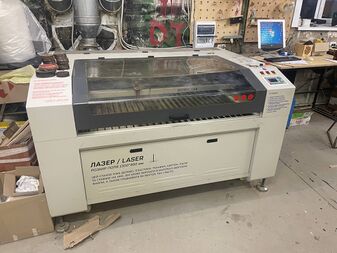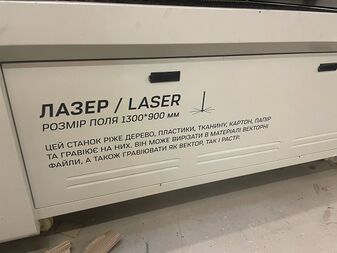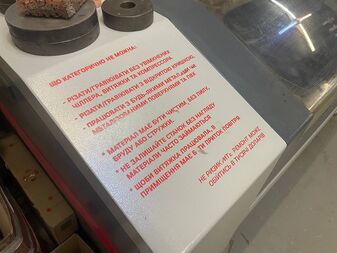In this project, we decided to accumulate the experience of two Ukrainian workshops (OstrivLab and the open workshop "Parasolka") in administration and management.
Workshop administration and management are quite complex topics that contain many components and depend on many factors. We hope that the material presented below can help you improve your existing workshops, or dare to open a new one.
You should immediately realize that each project, each workshop and team are individual cases with different strengths and weaknesses, and there is no universal model that will suit everyone. But there are a number of processes and problems that have similar specifics, and for which more or less universal solutions can be generated.
Contents
We can outline several popular problems.
- Insufficient resources. Many FabLabs have limited budgets and equipment, which can make their administration and management difficult. Insufficient funding can affect the availability of modern equipment and technology.
- Personnel problems. The ability to attract and retain highly qualified personnel is a key condition for the successful operation of FabLab workshops. A shortage of technical specialists can lead to interruptions in work and deterioration of the quality of services.
- Safety and security. Safety and security management in FabLab workshops requires continuous improvement. Improper use of equipment, insufficient occupational health and safety and lack of effective security measures can lead to danger for users.
- Technical problems. The lack of a clear technical support system and insufficient equipment maintenance can lead to frequent technical failures and interruptions.
- Low hardware load. There may be a problem with low loading of expensive and complex equipment due to lack of sufficient demand among users or insufficient quality of service provision.
- Lack of coordination. FabLab workshops may have problems with organization and coordination of work. The absence of an effective management system can lead to operational failures and inefficient use of resources.
- The need for constant updating. The rapid pace of technology development requires constant hardware and software upgrades, which can be costly and require a lot of effort from administrators and managers.
- Lack of standardization of processes. A lack of standards and procedures can lead to inconsistencies in work, which can make it difficult for users to learn and work.
- Marketing and promotion issues. It is important to be able to attract new users and ensure stable demand for FabLab services. Problems with marketing and promotion can affect the financial stability of workshops.
- Interaction with the community. The successful operation of FabLab workshops depends on interaction with the local community, educational institutions and enterprises. Lack of effective interaction can make it difficult to attract new users and develop workshops.
And we can immediately list some basic and quite universal options for solving these problems.
- Insufficient resources:
- attracting funding through grants, sponsors or industry partners;
- establishing partnerships with companies to exchange equipment or update it at a joint expense.
- Personnel problems:
- development of programs to support education and training of specialists in the field of technology;
- introduction of an internship and support system for young specialists.
- Safety and Security:
- holding regular security trainings for users and staff;
- application of modern security monitoring and control systems.
- Technical problems:
- conclusion of contracts for technical maintenance and systematic inspection of equipment;
- creation of a system of immediate response to technical problems.
- Low hardware load:
- conducting marketing campaigns to increase demand for workshop services;
- development of programs and courses to attract new users.
- Lack of coordination:
- implementation of the project and task management system;
- organization of regular meetings and communication events.
- The need for constant updating:
- development of a hardware and software update strategy;
- establishing partnerships with vendors to obtain discounts on upgrades.
- Lack of standardization of processes:
- development of work standards and procedures to ensure consistency and efficiency;
- training staff and users to use standard approaches.
- Marketing and promotion issues:
- use of social networks and online platforms for marketing;
- development of creative initiatives and measures to attract attention.
- Interaction with the community:
- organizing open events for the public and partnering with local institutions and companies;
- cooperation with educational institutions for the development of training and education programs in the field of technology.
Skills
Administering a FabLab workshop requires a variety of competencies and skills. Below are general roles and responsibilities that can be included in a team for effective administration.
1. Head of the workshop (Lab Manager):
- development and implementation of strategic plans;
- budget and finance management;
- coordination of safety and labor protection;
- interaction with partners and the community.
2. Technical Specialist:
- responsibility for the operation and maintenance of technical equipment;
- introduction and improvement of new technologies and tools;
- technical support for users and staff.
3. Project Manager (Project Manager):
- organization and management of projects in the workshop;
- creating schedules and monitoring tasks;
- coordination of the work of teams and resources to achieve project goals. 4.
4. Training and Development Specialist:
- development of training programs and courses for users;
- trainings and support for newcomers;
- organization of seminars and workshops.
5. Public Relations Manager:
- development and implementation of marketing and promotion strategies;
- interaction with media, community and partners.
- organization of events and promotions.
6. System Administrator (System Administrator):
- ensuring the stability and security of the network and information systems;
- solving technical problems and infrastructure support.
7. Business Development Specialist:
- establishment and development of partnerships with companies and other institutions;
- search for new opportunities for financing and development of the workshop;
- market analysis and development of growth strategies.
This is just a general list of roles. In reality, the team can look different, depending on the size and characteristics of a particular FabLab workshop.
Before starting the work of an open workshop, you should have a basic understanding of how the following points will be performed.
1. Workshop management:
- planning and coordination. Development of strategic and operational plans for the development of the workshop, as well as coordination of their implementation;
- organization of work space. Establishing effective location of equipment and infrastructure.
2. Financial management:
- budgeting and financial control. Management of budget resources, cost control and development of savings strategies.
3. Maintenance:
- equipment management. Ensuring proper operation and technical support of all workshop equipment;
- ensuring security. Implementation and control of safety rules, provision of instructions to users.
4. Communication and interaction:
- relations with the community. Establishing and maintaining positive relations with the local community, partners and other stakeholders;
- interaction with users. Providing information to users, solving their questions and taking feedback into account.
5. Personnel management:
- recruitment and personnel management. Selection, training and evaluation of workshop employees;
- creation of work schedules. Assignment of tasks and control over their execution.
6. Training and development:
- development of training programs. Creating and updating educational programs and courses;
- training support. Providing help and support to newcomers and users.
7. Marketing and promotion:
- marketing strategies. Development and implementation of marketing strategies to increase awareness and popularity of the workshop;
- organization of events. Holding exhibitions, workshops and other events to attract attention.
Decision
Some of the solutions implemented in our workshops.
Let's move from more general information to applied solutions that work very well in our workshops and also greatly facilitate the work of the administrator.
- Job descriptions and checklists.
This is a very important component of workshop administration. The sooner you document and work through it, the easier it will be. These documents are very often out of date, and you must improve and adapt them based on constant feedback.
Here are some job instructions and check sheets according to which the Open Shop "Parasolka" works
- CHECKLIST FOR MAINTAINING ORDER IN THE MAKERSPACE
- Horizontal connections
One of the very important and not always obvious points is the possibility of horizontal connections and understanding who else is in the space of the workshop.
It is important to make a list of all residents and their competencies. This document must be available to all residents (physically in the space or online). This greatly helps the exchange of experience between residents and significantly optimizes the workload on the administrator.
- Work with requests
It is important to document and structure requests from visitors to optimize the administrator's work.
For example: if there are constant requests for laser cutting, and each resident requires an individual master class, then it is worth defining an hour a week when everyone who wants to master the laser could go through a centralized instruction.
Here is an example of how GarageHUB from Kharkiv creates solutions to requests/problems that often arise: cleaning, knowledge transfer, conflict resolution and decision making.
- Infographics in space
This is an important component. All frequently asked questions should be verbalized and placed in space.
This applies to safety instructions, equipment management and general rules in space.
We have several solutions:
- QR codes with video instructions for each machine in the space. This is a very useful thing that can be done with the help of improvised means. To do this, you need to shoot a video (even a phone is suitable), where a resident who knows the equipment well will provide instructions on how to use the machine. Next, upload it to your YouTube channel and generate a link code for this video. The QR code can be glued directly to the machine.
- Infographics in space. Some of the graphics with instructions are placed directly in text blocks on the equipment, where we write a short instruction — what materials this machine works with, as well as warnings about what not to do. You can see an example of such an infographic on the example of our Laser machine (photo machine).
Attached is a file containing some of the instructions and infographic elements in the Ostrivlab workshop. Photo of how this infographic looks on a laser:
- Фундаментальні цінності. Зазвичай наявність цього дуже впливає на загальне функціонування майстерні. Це повинні бути певні непорушні істини, сформовані ідеологами майстерні або спільнотою, і які мають розділяти всі нові люди, що заходять у ваш простір. Це часто служить нагадуванням, а також певним дороговказом, який дає можливість орієнтуватись в середовищі. Тут приклад 4-ох принципів майстерні OstrivLab, які в значній мірі спрощують адміністрування.
- Контроль доступу до обладнання і простору. Це великий біль для всіх майстерень, і в нашій майстерні ми наразі почали тестувати систему контролю доступу FABMAN. Це стартап австрійської компанії, яка створила мережу фаблабів Happy Lab, і має чудово налаштований адмінпроцес майстерні завдяки своєму продукту.
Фабмен — це система, покликана спростити адміністрування майстерень, зокрема фаблабів таких, як Острів. Система має софтову та хардову складові. Хардова — це так звані бріджи (містки), контролери, які подають або вимикають струм на обладнанні, мають дисплей, зчитувач карток, та керуються через вайфай. Софтова частина — це повноцінна онлайнова адмін-панель, з можливістю керувати доступом, бронювати дати в календарі, фіксувати час використання обладнання або просторів, та виставляти рахунки за користування ними. При цьому кожен учасник також може мати свій персоналізований профайл, доступ й план користування.
Така система корисна для переходу до управління, що ґрунтується на даних. Тут добре видно що, коли і скільки часу використовується. Також система знімає багато адміністративних задач і децентралізує процес доступу, та водночас не нехтує технікою безпеки. Потенційно наявність календаря покращує тайм-менеджмент і дозволяє уникати черг на використання обладання/просторів. Можливість керувати не тільки пристроями, але й вхідними дверима нам здається дуже зручною для організації доступу до платформи загалом.
Одним з потенційних недоліків, з якими ми зіштовхнулись, є обмеженість адмінпанелі та відсутність специфічних функцій. Таких, як виведення на дисплеї календаря з бронюванням певних просторів, що не мають контролерів доступу. Потенційно відкритий код JSON API (https://github.com/FabmanHQ/fabman-api) дозволяє створювати унікальні софт-інструменти в адмінці відповідно до потреб, тож розраховуємо кастомізувати її під себе додатково. Також, зважаючи на досить високу (принаймні для українського контексту) вартість абонплати, ми вбачаємо важливим напрямком оптимізацію кількості бріджів. Наприклад, для вхідних дверей фаблаб в Брно пропонує дешевшу опенсорс конфігурацію контролера (https://github.com/fablab-brno/Fabman-door-reader).
The next year of tests of the Fabmen system on the Island platform will allow us to better understand the configuration we need without the complex, long and expensive process of developing our own solutions. After that, we will be able to make a decision about continuing the integration of the system or finding another alternative system, or even combining several systems.
There are many similar systems on the market, but all these services are quite expensive, and at the initial stage they may not be financially accessible for a small workshop. Open source systems are also available. In particular, the Kyiv Haklab workshop is working on releasing its own system developed for its workshop. Estimated release is planned for February 2024. Previous developments can be found at the link here


